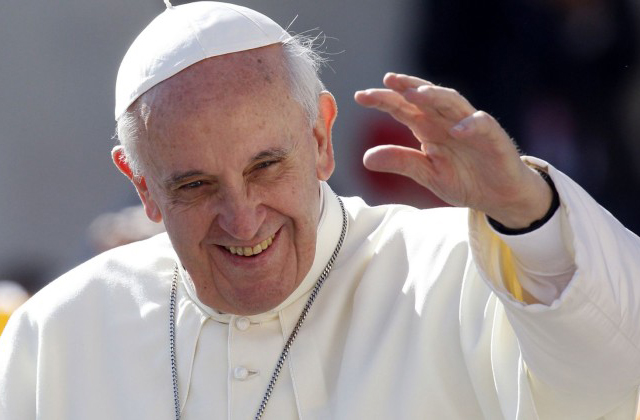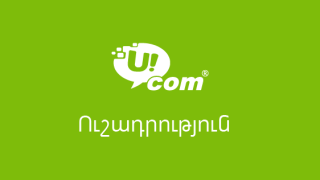Message of the Pope to and by Armenia

Visit of the Pope this week will become the most important political event. Armenia is going to be in the center of attention of international media outlets. As already known 600 reporters have been accredited to elucidate visit of Pope Francis. 300 of them are representatives of international press.
Interest of Armenians towards the visit of the Pope, naturally, is explained by Liturgy on commemoration of the victims of the Armenian Genocide held at St. Peter’s Basilica of Vatican on April 12, 2015. Any Armenian remembers with distinguished warmth that Pope Francis proclaimed St. Grigor Narekatsi Doctor of the Church (this title has been granted to 37 people since 1298). The Pope is not only head of the Church. He is also head of the State of Vatican. Thus, during all his visits state leaders welcome him.
Foreign media outlets attach particular attention to the fact, that visit of the Pope is not a regional, he visits to Armenia only. His visit to our neighboring countries is planned later—in late summer. According to the assessment of media outlets, which follow clerical news, international interest towards the visit of Armenia is compatible only with the meeting of the Pope and Russia’s Patriarch held this February. For his visit to Armenia Pope Francis has chosen the slogan of John-Paul II “Visit to the first Christian country.” founder of papal throne is considered Apostle Peter.
For this reason those reigning papal throne, in respect to their Apostle, are banned to bear the name Peter. From about the formulation until the Second Vatican Council (1962-65) the Pope strived to oblige other Christian churches to accept his supremacy. History of relations between the Armenian Apostolic Church and papal throne of Rome comes from the foundation of the two churches.
The first maintained documents edifying these relations are dated to the 9th century. An original historical period initiated in 1054 after the church was separated, when thrones of Rome and Constantinople severed ties and due to doctrinal and political discordances mutually anathematized one another. In the period of existence of this and Armenian Kingdom of Cilicia Rome’s papal throne became an ally of our church as a result of geo-political processes.
After the fall of the Kingdom of Cilicia change of the political situation led to weakening of ties. At the Second Council of Vatican Catholic Church of Rome reviewed its principles and proposed the traditional Christian churches to resist challenges of time with united efforts. The Armenian Apostolic Church had its investment in the developed ecumenical movement. In the period of Vazgen I and Karekin I Catholicoses of All Armenians our church had an active participation in the World Council of Churches. And Karekin II is the co-chair of the World Council of Churches. Started from His Holiness Vazgen all our Catholicoses visited Rome, which edifies of close relations and cooperation between the two churches
Prior to celebration of the 1700th anniversary of Christianity John-Paul II donated to St. Etchmiatsin a relic of Gregory the Illuminator, and then for the first time, he visited Armenia, bringing his participation to the festive and ritual events. At the Second Vatican Council papal throne of Rome officially declined the anathema put on the Orthodox Church. However, relations between Vatican and Orthodox Churches remain unsettled.
Slightly said, not settled. In 2001 while planning its events our church took this contrast into consideration. The program was made on account of interests of Catholic and Russian Orthodox Churches. Heads of the Armenian Apostolic Church succeeded to maintain friendly relations with traditional and large Christian churches, becoming an original bridge between them. However, clerical media outlets reporting on the visit of the pope to Armenia, don’t explain it only by historical and current authority of the Armenian Church.
Pope Francis wrote on his personal website and page, that he’ll visit to the Eastern country Armenia, which was the first to obtain Gospel of the Christ. Many observe political and ideological message in his statement. Pope Francis, who declared peace and tolerance as main values, on the one hand, reminds to the Western states of Christian East. On the other hand, it’s being hinted to Christians of Western countries alienating from Christianity on the importance to return to their Christian roots.
Maybe as a result of this hint “Armenia, the country, that was the first to obtain the Gospel of the Christ” expression was born. Currently this formulation has quite different political and ideological perception in the West, than a few years ago.
By Ara Galoyan

























